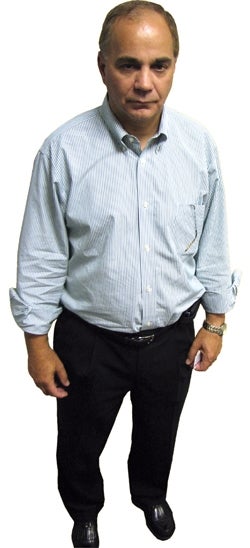After beginning his career as a teacher and then working his way up through the sales and marketing departments of several Massachusetts tech and software companies, Bill Andrews became CEO of ExaGrid Systems in July 2005. Since then he has made the company the second largest disk-based data back-up and de-duplication firm in the country, second only to Data Domain, the California firm recently acquired by EMC Corp. for $2.1 billion. ExaGrid claims 400 customers and has had only one down quarter since Andrews arrived. Here, Andrews talks about how data de-duplication works and why the technology has suddenly captured the market’s attention.
>>Does the EMC acquisition of Data Domain signal an industry-wide consolidation?
You never know. The industry is wrought with acquisitions. The big companies don’t come out with new products anymore. When was the last time IBM or HP came out with something new? They are giant sales and marketing operations, and they’re very good at it, but can HP afford to throw money at companies like ExaGrid or Data Domain? You find there are just a couple with deep pockets and they’ll go out and pick you up.
>>How does the ExaGrid system work?
You put an ExaGrid system on a rack in a data center. We plug in through an Ethernet connection to a back-up server and write to network attached storage. The data is going over wire encrypted, and it becomes targets for back-up jobs. We can set up an ExaGrid system in 30 minutes to 2 hours.
>>How do companies use data de-duplication and why?
Disk-based back-up and data de-duplication are used in case people delete files or overwrite files. They need to have that data backed up. That has been done with tape. Tape is very inexpensive, and companies will keep that on-site for up to 10 weeks and up to 3 to 7 years off-site. In the past, you couldn’t possibly do that with disk. It was too expensive. What has changed is disk drive prices have fallen and server prices have fallen.
>>How has the business changed?
It hasn’t changed a lot. I call it the IT space where time stood still. It’s exciting because this is the first time it’s changed in a long time. Now, for the first time, a business would spend $50,000 for a tape system or $65,000 for disk, not $50,000 for tape or $3 million for disk. Disk was always an alternative for 100 times the price.
>>What attracted you to ExaGrid?
I worked at a company in the 90s called Network Integrity, and we were trying to solve this problem back then. People were screaming about how tape stunk. We had sold Pedestal (one of Andrews’ previous companies) and I got a call from a board member here and I said, “All the technology now exists to solve this problem. It’s a huge market, and it appears all the technology is here.”
>>What’s next for ExaGrid?
For us, it’s all about building our channels. We’ve got sales reps all over the place, and we’re continuing to expand all over the world. We have a product. It works. Now, it’s all about getting in front of customers and telling our story.
>>How many customers do you have and how are you managing to grow?
We have 400 customers, and people can’t spend money in this economy unless something breaks. If the tape library is dying, if it’s finally at the point where it’s that old and the CFO agrees that you can’t not back-up and they know this kind of stuff exists…with the kind of noise that occurred around the EMC, Data Domain deal, that kind of catapulted the market. So, all of these things have come together to finally solve the problem, and here comes the market. We would be moving faster if it hadn’t been for this economic recession.
>>Is the ExaGrid system the type of product a company buys and never has to buy again?
No. Companies’ data is doubling every two and a half years. We get a higher percentage of our business from existing customers. Repeat business is growing faster than new customers.

